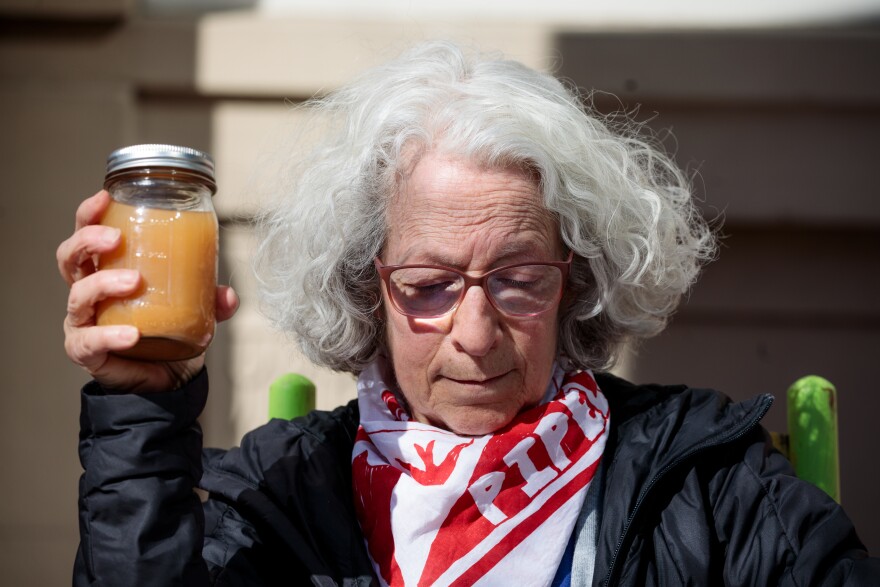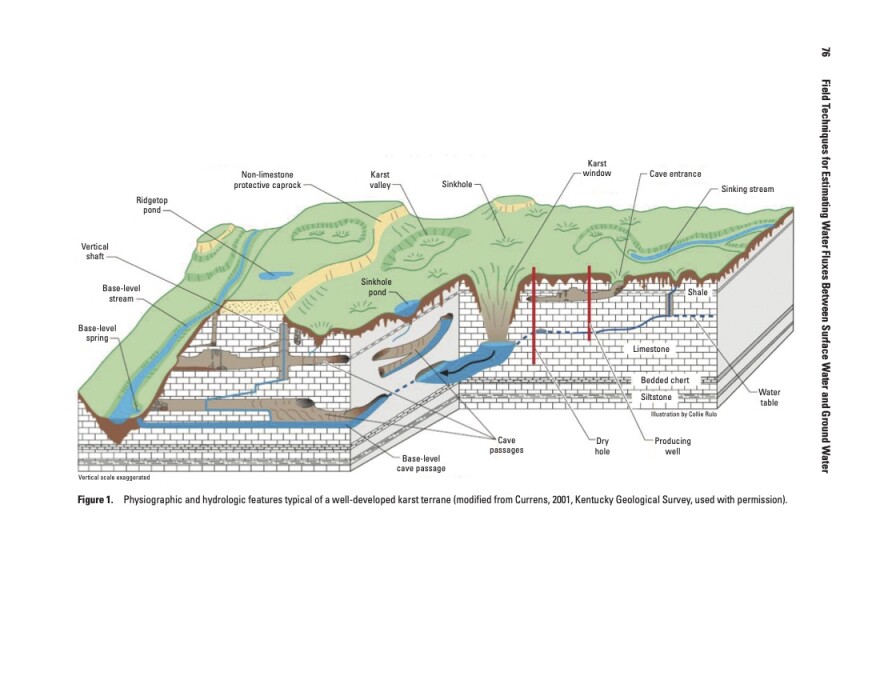As construction of the Mountain Valley Pipeline nears completion in parts of Virginia and West Virginia, local residents and activists opposed to the project have continued speaking out against it, as the pipeline’s developers have further pushed back the expected in-service date.
A group of activists with Third Act Virginia were removed from Attorney General Jason Miyares’ office in Richmond last Wednesday after staging a brief sit-in – they delivered a petition, but were barred from meeting with Miyares or his staff members. Activists also attended a Friday meeting of the state Water Pollution Control Board in Richmond to call for a stop work order.
The petition calls for the AG and state Department of Environmental Quality to enforce state environmental law and permits, and a 2019 consent decree signed by former Attorney General Mark Herring – that decree was in connection with hundreds of reported environmental violations by the developers, and lists specific monetary fines for a range of infractions.
Deborah Kushner was one of the activists at Wednesday’s sit-in. She says the damage done by pipeline work is evident.
“Sediment is everywhere along the pipeline route, it's in the roadways. It's coursing down the rights of way. It's in the streams and the rivers,” Kushner said.

She and the others – Alan Moore and Bridget Kelley-Dearing – were arrested in 2021 for blocking access to an MVP worksite. The trio chained themselves to a car decked out in colorful anti-pipeline messages. They were not arrested for last week’s demonstration.
Before their sit-in, the three elder activists and a crowd of protestors read testimonies from impacted residents. One testimony was from Perry Martin, a supervisor in Giles County, where a sediment plume made the clear waters of Sinking Creek opaque.
In a Feb. 6 letter to the state Department of Environmental Quality obtained by VPM News, Martin asked for urgency and transparency.
“The community needs answers as to what has happened and what is being done to stop the problem. I also believe that any work that MVP is doing that adds to this problem be stopped until appropriate measures are in place to mitigate the problem and address the damage that is actively happening,” Martin wrote.
As of Feb. 16, DEQ said the issue had been resolved.
“Sediment laden water suspected to be from a bore pit to an offsite spring was mitigated by sediment trapping and removal measures by MVP. After a little over one week's time, the water from the spring cleared and release of sediment laden water to Sinking Creek stopped. MVP removed sediment trapping measures and stabilized areas where work had disturbed vegetation on channel banks.”

Last week, the Protect Our Water, Heritage Rights coalition reported a landslide on MVP right-of-way to the U.S. Pipeline and Hazardous Materials Administration.
“The area surrounding this hazard includes several occupied homes near Mountain Lake Road, the main thoroughfare from US Route 460 to Mountain Lake Lodge and the Appalachian Trail. Notably, one of the last remaining historic covered bridges in Virginia is directly adjacent to the pipeline trench,” wrote POWHR co-director Russell Chisholm.
Developer Equitrans Midstream announced this month that construction delays have increased the estimated price tag of the project to between $7.57 billion and $7.63 billion. Equitrans also pushed the completion date to the second quarter of 2024. The company originally estimated a $3.7 billion price tag and in-service date of late 2018.
“In addition to unforeseen construction issues, throughout much of January, we encountered considerably adverse weather conditions, including precipitation well above 20-year averages,” said Diana Charletta, president and CEO of Equitrans, during a Feb. 20 investor call.
Charletta said the developer’s focus is “on the project's environmental protocols and maintaining permitting compliance.” As of Feb. 15, she said the project has roughly four miles of pipe left to lay and 13 remaining water crossings – down from 428 when work resumed in 2023.
Activists say these final miles and crossings are the most difficult and prone to environmental damage – they’re on steep slopes and over karst topography, a type of landscape noted for its complex, ever-changing surface, underground water features and sinkholes.

“It's not possible to put this pipeline here safely. The terrain is unwelcoming,” Kushner said.
MVP does have a karst mitigation plan featuring monitoring and stabilization protocols, which states:
“Avoidance of a karst feature constitutes the first and foremost recommendation for mitigating impact. If an identified karst feature cannot be reasonably avoided, or if a previously unidentified karst feature is encountered or forms during construction, this Karst Mitigation Plan provides recommendations for impact mitigation and feature stabilization.”
The Attorney General’s office did not respond to requests for comment on the petition delivery or incident report response protocols.
DEQ spokesperson Irina Calos said the 2019 consent decree is still in effect.
MVP received blanket approval of federal permits in the 2023 Fiscal Responsibility Act passed by the U.S. Congress and signed by President Joe Biden. Court challenges to the pipeline have been thrown out, including a recent complaint over MVP’s use of eminent domain.









